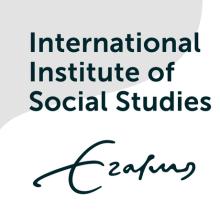Resource information
Chongjom border is a contested area which reflects power-related relationship between center and its marginal space. From deserted borderland in the buffer zone during Khmer Rouge period, Chongjom becomes an emerging 4th ranking of cross-border trading between Thailand and Cambodia, where value of exporting goods have been increased up to 224.05 % in 2013. The politics of changes in land use and property relations change lead to widen of land grabbing in the area. This paper attempts to address a preliminary analysis through an analytical approach from data gathered by in-depth interviews and focus groups of local people, politicians, Thai and Cambodian traders and government officials in Chongjom border and Surin province. The results indicate that politics of land grabbing plays a vital role on directing border development in which local politicians and government officials are main actors. There are 3 main border markets that have been established and exploited by 3 main political figures in this study. Network of political power in the sub-district, provincial and national level with reciprocal benefits arrangement help to sustain and retain their exploitation of the land over 2 decades. Powerful actors continue their attempts to maintain their interests by using counter-strategies. They are also trying to maintain and regain their political status by getting re-election into the border sub-district office and the provincial office and nominating their family members for an election campaign. One of land grabbing strategy to expand border market is using Cambodian traders to build new contemporary shops over the government stipulated rental area. Land grabbing expansion without proper landscape planning, waste treatment system, and environmental awareness causes environmental degradation and health problems among local people. Incineration without materials separation to remove hazardous materials before combustion is commonly used in the market area. Some of the children in the area already suffer from asthma.






